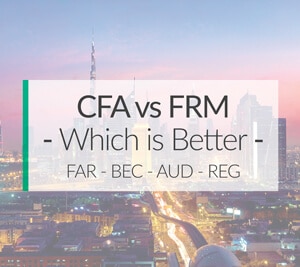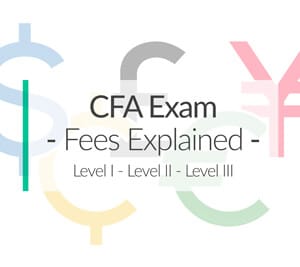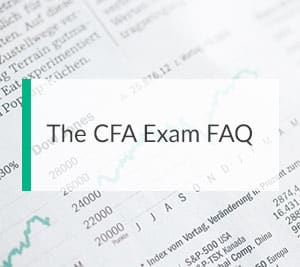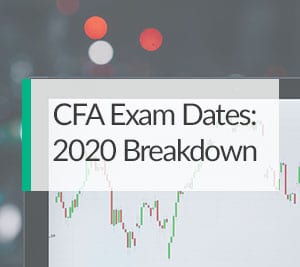
If you’ve taken the CFA® exam or are preparing to, you might be wondering about CFA® exam pass rates, the minimum passing score, and how the exam is graded and scored. The quest for this information is common among aspiring CFA® charterholders who eagerly await their results after each exam window.
Fortunately, the CFA® Institute provides valuable insights into the CFA® exams. This can address these questions and provide a clearer understanding of the exam process. In this article, we will delve into the CFA® exam results, pass rates, and the intricate grading and scoring mechanisms employed by the CFA® Institute.
Whether you are a current candidate anxiously awaiting your results or a prospective candidate aiming to gain a deeper understanding of the CFA® exam, this article will serve as a comprehensive guide to demystify the grading and scoring process and provide valuable insights into the pass rates that shape the CFA® journey. It will also demystify the grading and scoring process and provide valuable insights into the pass rates that shape the CFA® journey.
Let’s dive in and unravel the intricacies of the CFA® exam results and pass rates.
CFA® Exam Results, Pass Rates, and Grading
When Are Exam Scores Received from the CFA Institute Board?
The CFA® exam results are issued directly by the CFA® Institute Board to Level I and Level II candidates within 60 days of their exam date. Level III candidates receive their results within 90 days. These timelines ensure that candidates receive their scores in a timely manner, allowing them to plan their next steps in the CFA® program effectively.
For those who took the June exams at Levels I and II, personal and aggregate scores are typically released at the end of July, offering a crucial moment of anticipation and reflection for candidates. Level III candidates, on the other hand, can expect to receive their results in early August, marking a significant milestone in their CFA® journey. December test takers, who solely sit for Level I, receive their exam results by the end of January, providing an exciting start to the new year.
How is CFA® Exam Graded?
While the CFA® Institute is notoriously secretive in the way they grade the exams, they do give us some details about their methodology and the overall process.
The CFA® program exam results play a pivotal role in a candidate’s progress and aspirations within the program. These scores determine whether candidates have achieved the minimum passing score (MPS) necessary to proceed to the next level or earn the prestigious CFA® designation. The CFA® Institute Board ensures that the grading process is rigorous and fair, incorporating various factors to evaluate candidates’ performance accurately.
To maintain consistency and fairness, the CFA® Institute Board employs a comprehensive grading process that involves both multiple-choice questions and essay portions. Each exam level has its unique grading system to ensure an accurate assessment of candidates’ knowledge and understanding. The grading process may involve team grades, confidence intervals, and other statistical techniques to ensure accuracy and eliminate potential biases.
Let’s take a look.
How is CFA® Exam Graded?
While the CFA® Institute is notoriously secretive in the way they grade the exams, they do give us some details about their methodology and the overall process.
The CFA® program exam results play a pivotal role in a candidate’s progress and aspirations within the program. These scores determine whether candidates have achieved the minimum passing score (MPS) necessary to proceed to the next level or earn the prestigious CFA® designation. The CFA® Institute Board ensures that the grading process is rigorous and fair, incorporating various factors to evaluate candidates’ performance accurately.
To maintain consistency and fairness, the CFA® Institute Board employs a comprehensive grading process that involves both multiple-choice questions and essay portions. Each exam level has its unique grading system to ensure an accurate assessment of candidates’ knowledge and understanding. The grading process may involve team grades, confidence intervals, and other statistical techniques to ensure accuracy and eliminate potential biases.
Who Grades the CFA® Exam?
The CFA® exams are both machine graded and graded by CFA® charter holders. For all multiple choice/scantron sections in Levels I, II, and III, the exams are graded by machine.
The essay portion of the Level III exam is graded by CFA® charter holders that travel to Charlottesville, Virginia, for the very purpose to grade these essays.
There are mock exams and practice exams that are created to replicate these official exams and ensure you can secure a solid exam pass rate.
How is the CFA® Exam Scored?
Once the exams are graded, the CFA® Board of Governors sets the Minimum Passing Score (MPS) for each level. The purpose of the MPS is to ensure a consistent level of difficulty and fairness across exams. The MPS is NOT released.
Because the CFA® Institute does not release the MPS, it is impossible to know your passing score on each exam. In addition, you do not receive one specific score when you receive your CFA® exam results. Instead, you receive a:
- “Pass” or “Did not pass” result. “Pass” means your score met or exceeded the MPS. “Did not Pass” means your score was lower than the MPS.
- Summary of how you did by each topic area covered on the exam as well as the maximum amount of points that you can earn in each topic area. Rather than receiving one score for each topic area, you receive a score range of less than 50%, between 50% and 70%, or more than 70% for each topic area.
The exams are weighted across ten different topic areas. The weights differ per exam and are shown below.
| CFA® Exam Topic Area | Level I | Level II | Level III |
|---|---|---|---|
| Ethics and Professional Standards | 15 | 10 – 15 | 10 – 15 |
| Quantitative Methods | 12 | 5 – 10 | 0 |
| Economics | 10 | 5 – 10 | 5 – 15 |
| Financial Reporting and Analysis | 20 | 5 – 20 | 0 |
| Corporate Finance | 7 | 5 – 15 | 0 |
| Equity Investments | 10 | 15 – 25 | 5 – 15 |
| Fixed Income | 10 | 10 – 20 | 10 – 20 |
| Derivatives | 5 | 5 – 15 | 5 – 15 |
| Alternative Investments | 4 | 5 – 10 | 5 – 15 |
| Portfolio Management and Wealth Planning | 7 | 5 – 10 | 10 – 55 |
Here’s what you should take into account when you evaluate your exam results:
Max Points Available
The maximum amount of points achievable varies for each topic area. For example, in the Level, I exam, a +70% score on the Financial Reporting and Analysis topic area would hold more weight than a +70% score on the Portfolio Management and Wealth Planning topic area. This is why the CFA® Institute recommends being as prepared as possible to demonstrate competency throughout all learning outcomes from the first to the final level.
Score Ranges Are Unhelpful
You cannot use the score range from each topic area to figure out your actual scores or whether you passed or not / did not pass the result. Because the CFA® Institute reports the scores as a range, the same summary score for two separate candidates can result in one pass and one not pass. This is because, as an example, one candidate could have scored a 99% in one topic area while another candidate scored a 71% in that same topic area.
What are the CFA® Pass Rates for Each Level?
Pass rates, an essential indicator of the overall performance of candidates, provide insights into the difficulty level and the knowledge required to succeed in the CFA® exams. Historical pass rates can guide candidates in setting realistic expectations and evaluating their preparedness. The CFA® Institute regularly releases pass rates, which represent the percentage of candidates who pass the exam, offering valuable insights into the performance of test-takers and the challenges they may encounter.
As you can see in the schedule below, the CFA® pass rates for each level vary within a very tight band. Level I candidates have the lowest pass rate. This makes sense because this is their first exam.
While Level III has the highest pass rate, do not be fooled that this is the easiest test. Candidates taking the Level III exam include those who have passed Levels I and II or those who are re-taking the Level III exam. Therefore, the Level III candidates pool is more experienced than first-time or ‘casual’ Level I test takers.
| CFA® Exam Results | February 2023 | November 2022 | August 2022 | May 2022 | February 2022 | November 2021 |
|---|---|---|---|---|---|---|
| CFA® Level I Pass Rates | 38% | 36% | 37% | 38% | 36% | 27% |
| CFA® Level II Pass Rates | n/a | 44% | 40% | n/a | 44% | 46% |
| CFA® Level III Pass Rates | 48% | n/a | 48% | 49% | n/a | 43% |
Want to Improve Your CFA® Score?
The best way to improve your CFA® score is to study more efficiently and effectively. To do this, you will need a proper review course and mock exams for practice. You can’t expect to pass the exam on your first try by using the study materials from the CFA® Institute. In order to pass, you’ll need something more than that.
You should look for a study guide that matches your learning style and fits within your budget to help you learn more about portfolio management, wealth management, and other CFA® topics. Here’s a list of the most popular courses out there.
CFA® Institute does not endorse, promote or warrant the accuracy or quality of AIS-CPA.com. CFA® and Chartered Financial Analyst® are registered trademarks owned by CFA® Institute.












